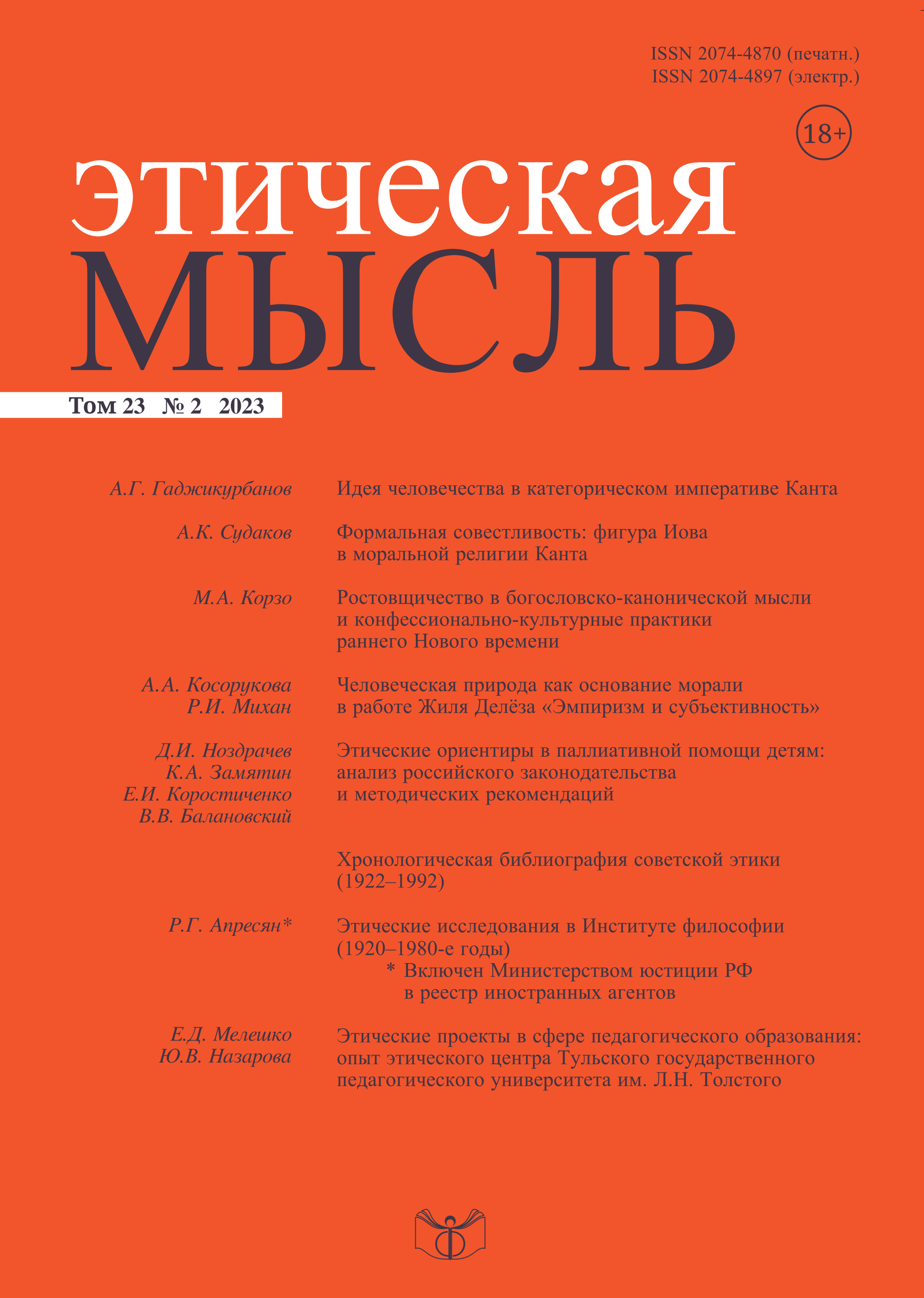Формальная совестливость: фигура Иова в моральной религии Канта
DOI:
https://doi.org/10.21146/2074-4870-2023-23-2-20-38Ключевые слова:
Кант, Иов, совесть, истинность, правдивость, знание, вера, убеждение, самоиспытание, присягаАннотация
В небольшой поздней работе Кант дает развернутую оценку ветхозаветного праведника Иова, его своеобразной теодицеи и его морального умонастроения, в противоположность позиции его друзей-утешителей. Статья имеет задачей проанализировать этический смысл суждений Канта об Иове, удостоверив эти суждения библейским текстом, а также установить мотивы и концептуальные итоги обращения немецкого философа к фигуре Иова. В фокусе внимания при этом – противопоставление долга содержательной правдивости как объективной истинности и долга формальной правдивости или честности с собой как строгой сознательности убеждений. Последняя обязанность служит в кантовской этике основой первой, как и основой внешних договорных обязательств. В делах морали и религии, где для человека, по Канту, возможно не предметно достоверное знание, но только моральная вера, формальная совестливость самосознания получает особенное значение. Напротив, недостаток этой формальной искренности убеждения, отказ удостоверять содержание собственных моральных верований есть нарушение высшего морального императива, равносильное отказу от собственной личности, и потому тот, кто допускает внутреннюю ложь, есть уже «обманчивая видимость человека». Недостаток внутренней правдивости делает возможными притворство в моральных верованиях, симуляцию убеждений. Друзья Иова для Канта – яркий пример подобной симуляции, соединенной с незаконными притязаниями теоретического разума. Человеческая природа, привычно наклонная к отступлению от требований закона, охотно идет по этому пути. Поэтому рефлексия о фигуре Иова как образцовом примере формальной совестливости морального умонастроения дает Канту повод для этических выводов о судебной присяге, ее смысле и границах применимости. Интересно, что мнение Канта детально совпадает здесь с позицией русского философа И.В. Киреевского.









